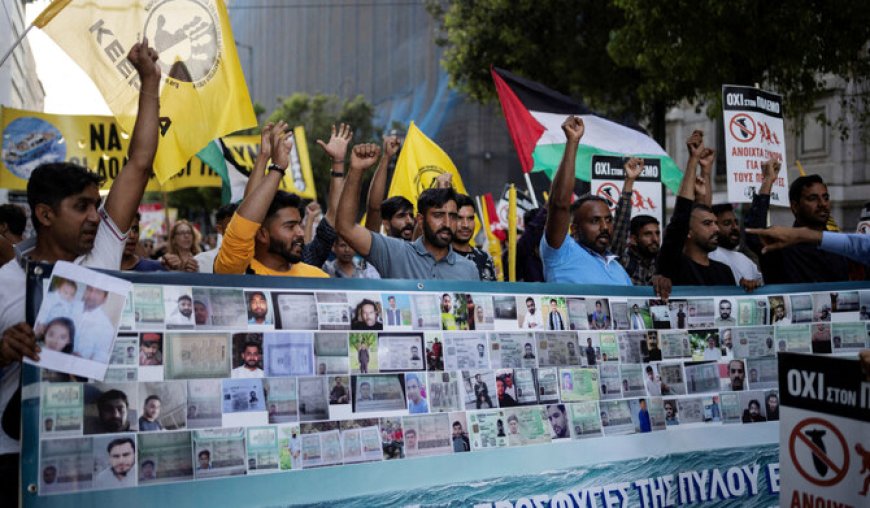A Demand for Responsibility: The Unfinished Shipwreck Investigation in Greece 2023
A fishing ship went down near the coast of southwest Greece on June 14, 2023, killing hundreds of migrants. The tragedy has lingered ever since. The Greek government's handling of the matter is called into doubt due to the failure to hold those involved accountable, even though an inquiry is ongoing. Due to major omissions in the initial investigation and the lack of clarity regarding the function of Greece's coast guard, attorneys representing victims and survivors of the tragedy have demanded more investigation.

A fishing ship went down near the coast of southwest Greece on June 14, 2023, killing hundreds of migrants. The tragedy has lingered ever since. The Greek government's handling of the matter is called into doubt due to the failure to hold those involved accountable, even though an inquiry is ongoing. Due to major omissions in the initial investigation and the lack of clarity regarding the function of Greece's coast guard, attorneys representing victims and survivors of the tragedy have demanded more investigation.
At least 600 people lost their life in what is considered one of the worst maritime tragedies in recent history. Before it went down in international waters, the Greek coast guard had been keeping an eye on the overcrowded boat for hours as it tried to escape dangerous circumstances in Libya. The survivors are demanding justice, and many of them are still struggling to cope with the trauma of that tragic day. However, it appears that their demands for responsibility are being ignored as the probe moves on.
Greek attorneys who have taken up the cause of the victims' and survivors' families have accused the naval court of not doing enough to determine who was responsible for protecting these people. They recently released a statement venting their frustrations about the exclusion of communications between the Greek coast guard and other officials engaged in the operation, among other vital pieces of evidence, from the case file. While the coast guard vessel's captain and crew were investigated, they said, higher-ups in charge of the operation were not.
Not only is this a technical error, but it also reflects a deeper problem with Greece's search and rescue operations. An obvious oversight is the lack of an examination of the duties of the appropriate authorities, such as the head of the Greek coast guard. That a tragedy of this scale, with such a high number of casualties, has not been thoroughly investigated at the highest levels is puzzling and frustrating.
We should also look more closely at the part that European governments played in these occurrences. Organizations concerned with human rights and international organizations have put pressure on Greece, a member of the European Union, to do something about the overall problem of deaths among migrants in the Mediterranean. Critics say the European Union's stance on migration and asylum, together with its other external border policies, fosters an environment where terrible things like this can happen. Risks for migrants seeking refuge have increased due to criminalization of those trying to reach Europe and a lack of support for them. One sad memory of the human lives lost as a result of these practices is the tragedy close to Pylos.
On the other hand, the shipwreck investigation's sluggish speed and lack of responsibility reveal a troubling trend of disregard for migrants' rights in Europe. So far, the investigation has been severely flawed since it hasn't asked the important questions that could help stop future tragedies like this one. This is a problem all across Europe, not only in Greece.
Who knows if the powerful will actually do anything as the investigation drags on. While the Greek coast guard has denied any responsibility, the relatives of the murdered and the survivors continue to seek answers. More than simply finding out what happened, what's at stake is honoring the humanity and dignity of those who perished in the Mediterranean. Those who died and everyone else who puts their lives on the line for a better future are insulted by the lack of a thorough investigation into this tragedy.
We will not ignore this tragedy. In it, the authors urge Europe to reconsider its policies that impact migrant lives and the safeguards put in place to keep them safe. Europe will continue to fail to address the causes of human suffering, and the Mediterranean will continue to be a graveyard for the desperate, unless those responsible are held accountable.













































